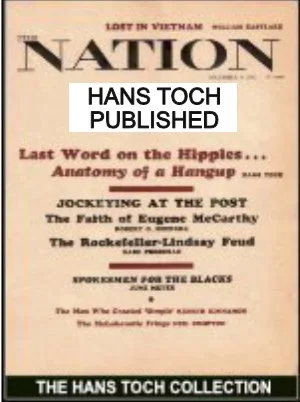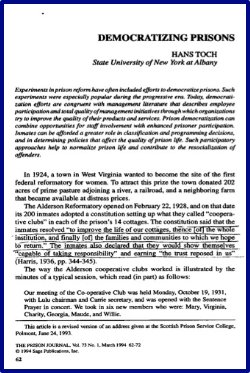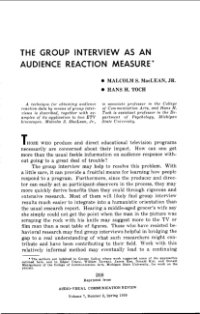By Hans Toch
“Few oxymorons sound to most people as silly and naive as that of prison democracy—and with reason. In fact, with two opposite reasons. For one, one wants offenders punished, and democracy sounds like a reward. For another, few citizens are enchanted with what passes for democ- racy elsewhere, and one can conceive of the liabilities of representative governance enhanced, corrupted, and caricatured in prison settings.”
Federal Probation. June 1995. 6p.





















